For live music venues like Camden’s Roundhouse, survival isn’t just an economic necessity – it’s cultural
Many can open but with social distancing in place this is not economically viable and the experience offered just isn’t what people want, writes James Moore

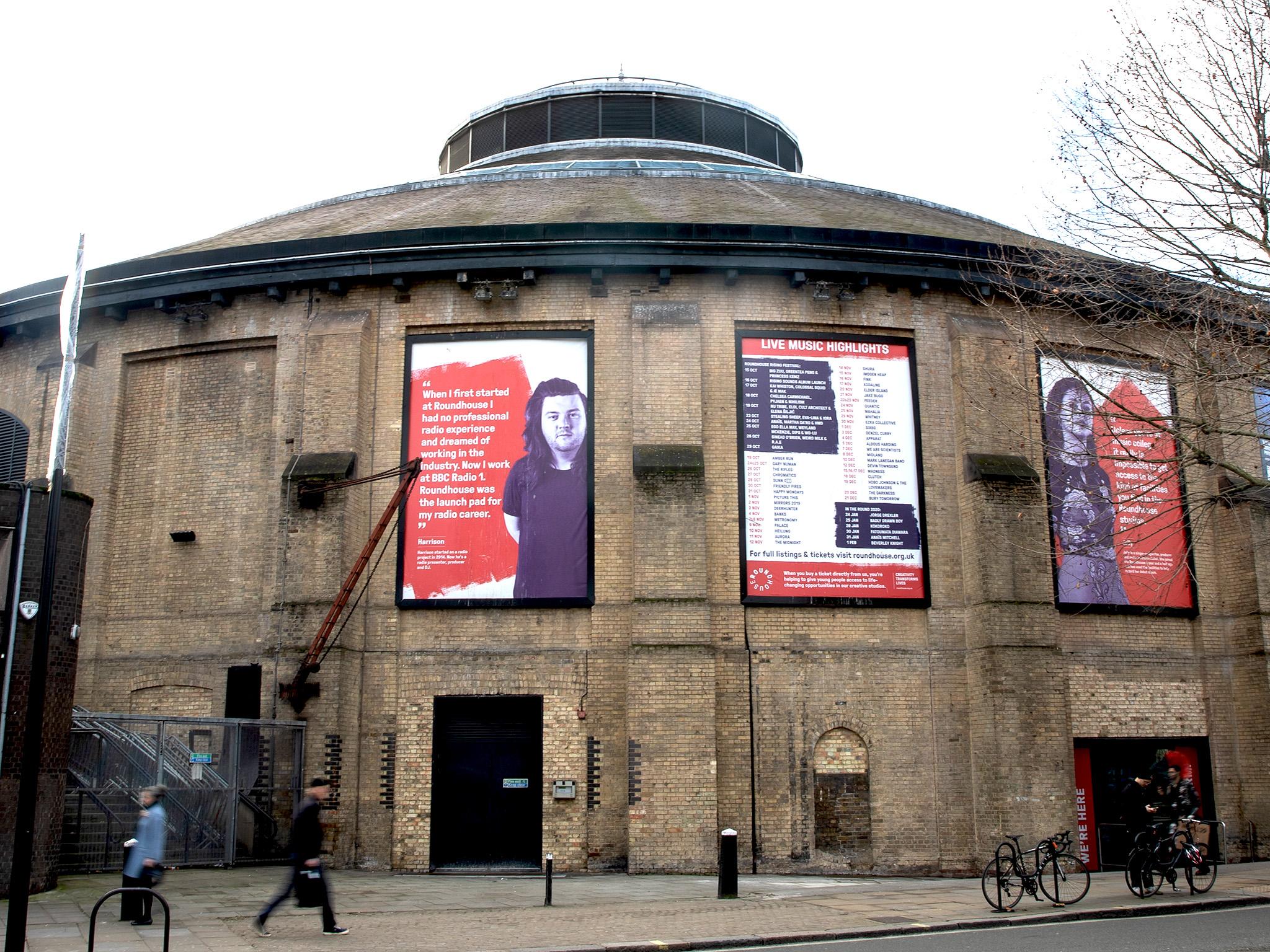
You’ll never experience it this quiet,” says Marcus Davey, the chief executive of Camden’s Roundhouse, in a half-whisper.
He’s taken me into the middle of the venue’s main hall, where we take in a silence that in more normal times you might have to go caving to experience. It’s not just that the venue is empty, as it has been since lockdown began in March. The air conditioning is off, so it’s uncomfortably warm. Ditto most of the lights. The stage has been taken down.
These, and other measures, are part of an emergency cost-cutting drive made necessary by a 70 per cent slump in income, caused by the pandemic.
Sitting in the middle of the hall, I feel uncomfortable. The atmosphere is sad, almost spooky. This is normally a place of unadulterated joy for fans of live music and other performance art, where careers blossom, legends are made, relationships between musicians and fans are established and cemented.
It is a busy place, where people come together to listen, but also to rehearse, practise and play in the facilities provided in the Grade II listed building. The Roundhouse is not just a venue. It’s a charity devoted to helping deprived young people.
Today it is dominated by that spectral silence.
The impact of lockdown is evident wherever you look. Outside, where the queues of ticket holders usually form before events, weeds poke up through the paving. You almost wonder when the tumbleweed will appear. As we exit the main hall, I spy a large bottle of hand sanitiser strategically positioned.
So far, more than 130 shows have been lost, and even with all the measures Davey has taken, including his own fundraising walks and other revenue-raising ideas, both charitable and commercial, he has had no choice but to start consultations on redundancies. It’s something that’s clearly weighing on this tall, engaging talker, as we sit down to discuss the Roundhouse’s situation, and the wider crisis in the live music industry.
In theory, the venue could reopen its doors for socially distanced events. In practice, it isn’t happening.
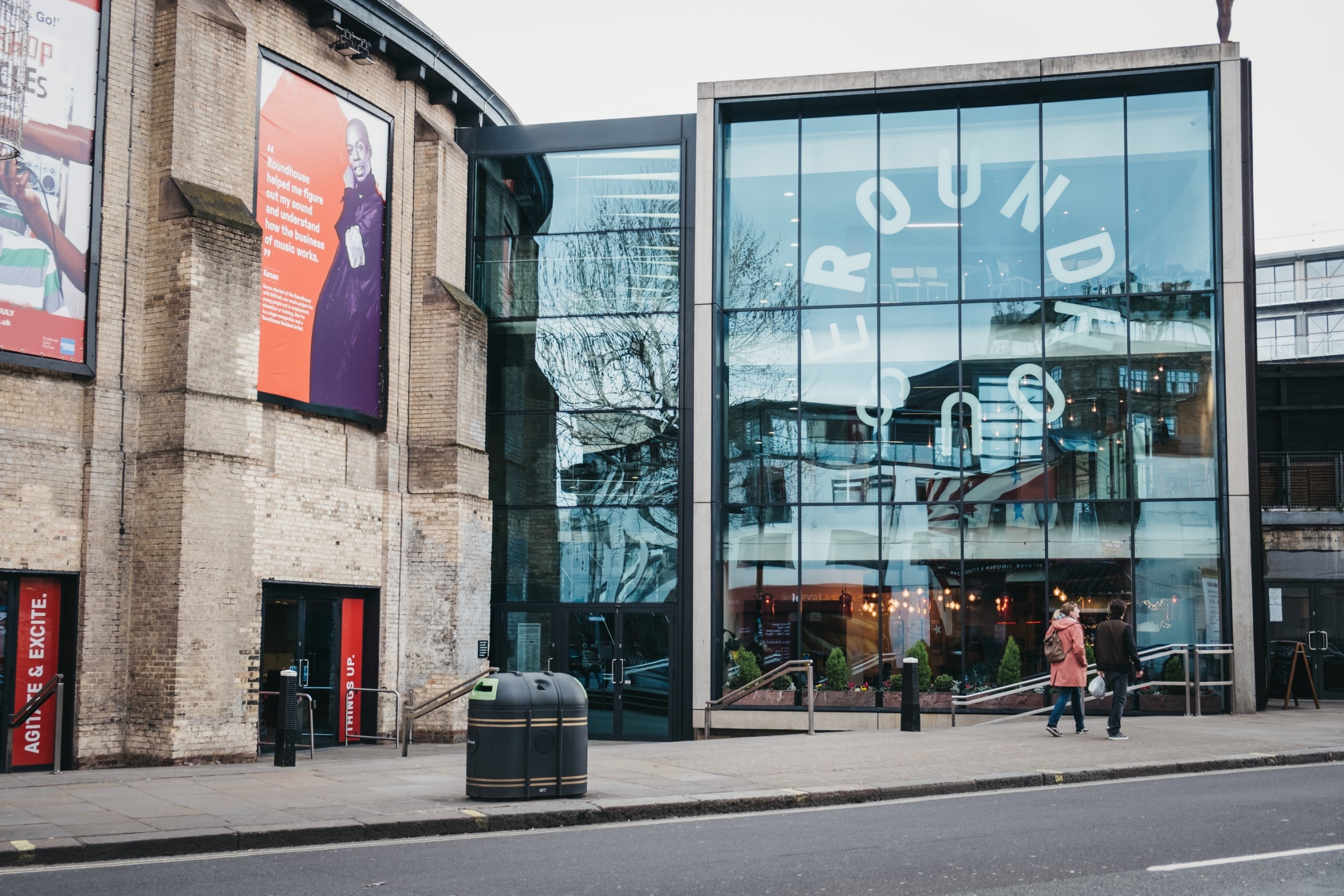
The Roundhouse needs to put on 110 gigs a year to keep the show on the road. “And they need to be pretty full,” Davey says. Distancing means it would have to run pretty empty.
“It’s the rental plus the secondary spend on things like bars, merchandising that we need. All those things are what make the difference for us.”
The income they provide helps with the place’s social purpose. In the bowels of the building are rehearsal spaces, high-quality instruments for disadvantaged young people to practise on, a 200-capacity venue for up-and-coming bands, poetry readings and suchlike, and a recording studio.
Socially distanced gigs will not help keep these running thanks to a hard economic reality.
“It just doesn’t work unless, say, the artists don’t get paid, the venue doesn’t get paid and audiences pay a lot more,” says Davey. He is particularly exercised about the last point.
“It would be absolutely dreadful were we to raise prices because a load of people have been affected by Covid-19. You’ve seen the impact increasing prices has had in football over time, you’ve seen it in some other areas. The heart and soul get ripped out. We’re very keen that ticket prices are affordable, especially at the moment when so many people have taken a hit.”
The show, such as it is, has been kept on the road by dint of some emergency Arts Council funding, the fundraising, and some commercial activities. Davey is constantly having to look at new ways of raising revenue – he professes himself pleased with a recent live streaming event featuring singer-songwriter Lianne La Havas. More like it should follow. There may also be private events.
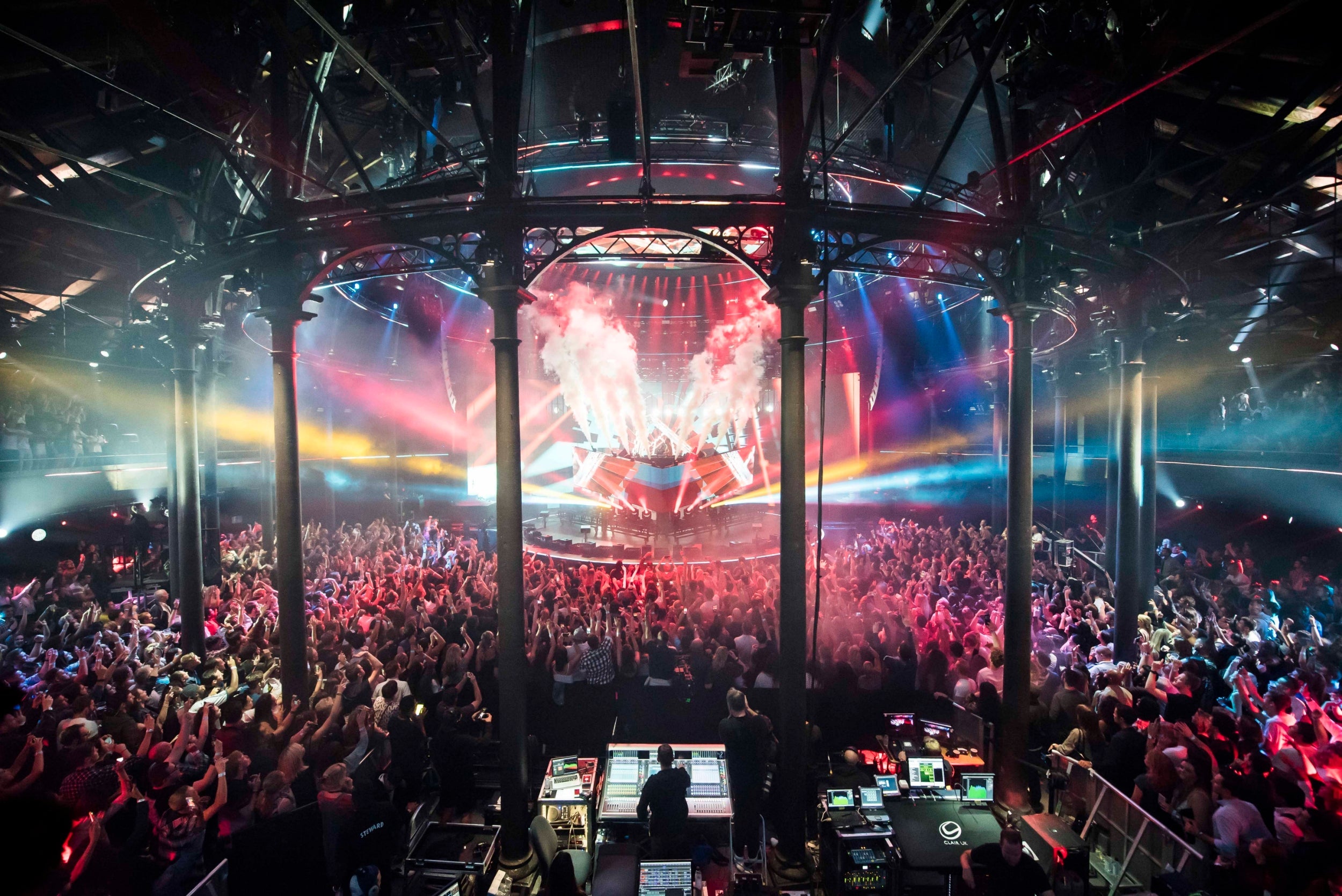
But when does he think the shows will return?
“As soon as possible. We want to get back to proper show going as soon as possible,” Davey insists. “As long as we can keep people safe. I don’t want anyone to get sick because we put something on and it wasn’t right to do it.”
The problem is that proper show going means no social distancing, and not just because otherwise the economics don’t work. The reviews from those that have been put on elsewhere have been lacklustre. This comes as no surprise to Davey: “Humans are not naturally distanced and live shows are where people come together.
“We have events in the diary and I hope they’ll happen. Whether they do is another question. I’ve been following all these studies about vaccines and if they’re rolled out… Maybe a really safe time will be next April.
Everyone who has headlined the Pyramid Stage at Glastonbury will have played at a grassroots venue. Without grassroots they will never have got their start
“I am a really optimistic person. People will tell you that. So I’ve been saying, let’s work with artists, let’s work with promoters. Let’s see what we can do. But we want to keep people safe rubbing shoulders in a mosh pit, having queued up for their drinks.”
That probably does mean only after a vaccine, and even then Davey has been thinking creatively. It goes beyond the hand sanitiser available around the building. He’s also looking at more digital ticketing, new queueing systems at bars, whatever it takes to make people feel confident about coming back.
This is not just a problem for the Roundhouse. It’s an industry-wide issue, and it affects all levels. The Royal Albert Hall told me it needs to run events at between 80 and 90 per cent capacity to break even. “Our modelling shows that returning to normal activity (with reduced audiences but not social distancing) by April 2021 would mean that we would avoid really drastic measures,” it said.
Drastic measures are already happening at the grassroots level, where the artists who sustain larger venues get their start.
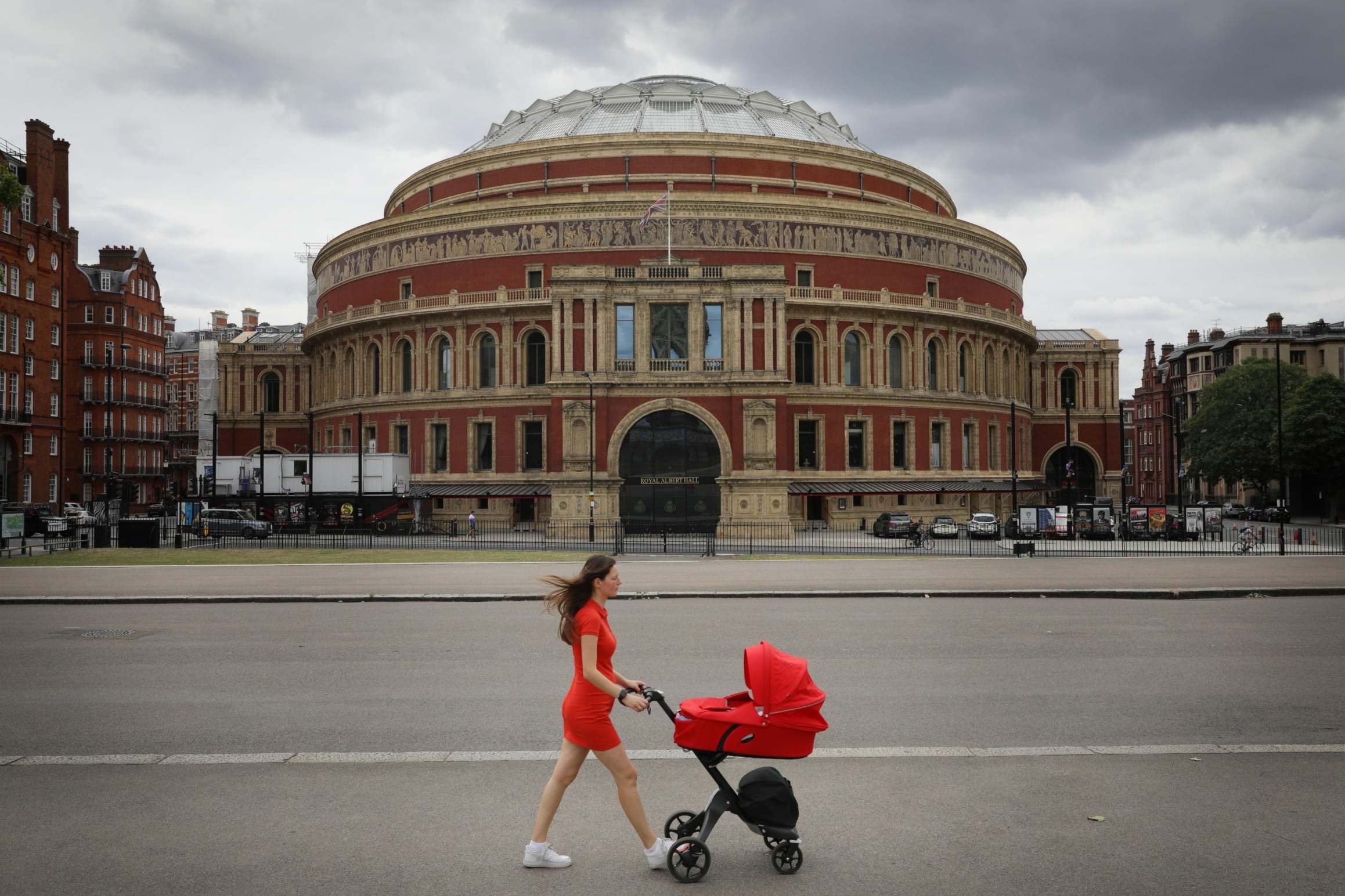
Mark Davyd, the founder and CEO of the Music Venue Trust, which aims to protect, secure and improve grassroots venues, is co-owner of the Tunbridge Wells Forum, a 250-capacity hall in the Kent town that is one of just 7 per cent that will be able to survive in the absence of further support.
The reason? Like the Roundhouse, it is an owned venue. It isn’t in hock to a landlord. It’s run for him and his business partner by a public interest company. That’s an all too rare situation.
“When you look at the liabilities venues face since they have been closed, 62 pert cent of it is going to pay landlords,” Davyd says. “The operators being tenants is why so many venues have closed. This crisis just re-emphasises the problem with the model.”
It’s a good point. Many grassroots venues are commercially run for profit. But profit is not their sole purpose. This is an industry fuelled by love as much as money. There are far, far easier ways of making it than putting on new, unsigned bands, and persuading people to put their hands in their pockets to come to see them, have a drink while they do it, maybe buy a T-shirt if they like what they see.
And yet it is an important business, one on the back of which a major export earner is built. Trade body UK Music’s Music By Numbers put the music industry’s contribution to UK plc as a whole at £5.2bn, including £2.7bn of export earnings, an important point given the nation’s persistent trade deficit with the rest of the world. It also sustained just over 190,000 full-time equivalent jobs.
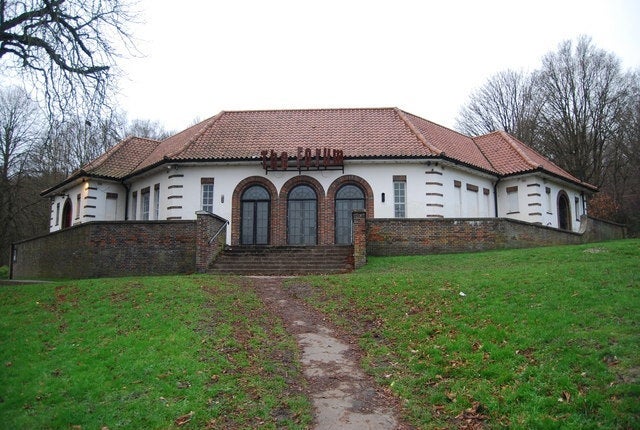
Grassroots venues of the type Davyd owns are its foundation. Without them, it will wither and die.
“Everyone who has headlined the Pyramid Stage at Glastonbury will have played at a grassroots venue. Without grassroots they will never have got their start,” he points out.
“But it’s not just the economic issue. The majority of these venues are outside London. If you’re a kid in one of the towns that has one you can go there and imagine that if you write songs you could play there one day. And even if you don’t, you might have the option to create a career somewhere else in the industry, as a lighting engineer or a sound man, perhaps. What we’re doing is fostering a culture of aspiration.”
While grassroots venues have cancelled thousands of shows – according to the trust’s figures they put on 175,000 last year – they too cannot afford to contemplate reopening with social distancing.
The Trust’s Reopening Venues Safely survey of 800 operators found that distancing of 2 metres would force a typical grassroots venue to operate at 12.2 per cent capacity. This would generate a monthly income of £4,084, against fixed monthly costs of £21,093.
But that’s before the additional costs to meet Department for Digital, Culture, Media and Sport reopening guidelines, which would require additional staff, cleaning and disposable items at a cost of £9,770, taking the average monthly loss to £26,800. Those figures also take no account of variable costs. Artist fees are an example of these.
It gets better at 1 metre, which would facilitate venues operating at 30.45 per cent of original capacity. But that would still produce a vast gulf between average monthly income – £10,169 – and break-even point.
The survey puts the industry-wide loss of operating with 2m social distancing at £278m, falling to £220m with 1m distancing.
But that’s still £27m more expensive than keeping the sector mothballed for a year. It comes out at £193m.
Davyd says the sector needs extra support and that the government’s £1.5bn arts bailout needs to be distributed “equitably”. Otherwise there will be carnage.
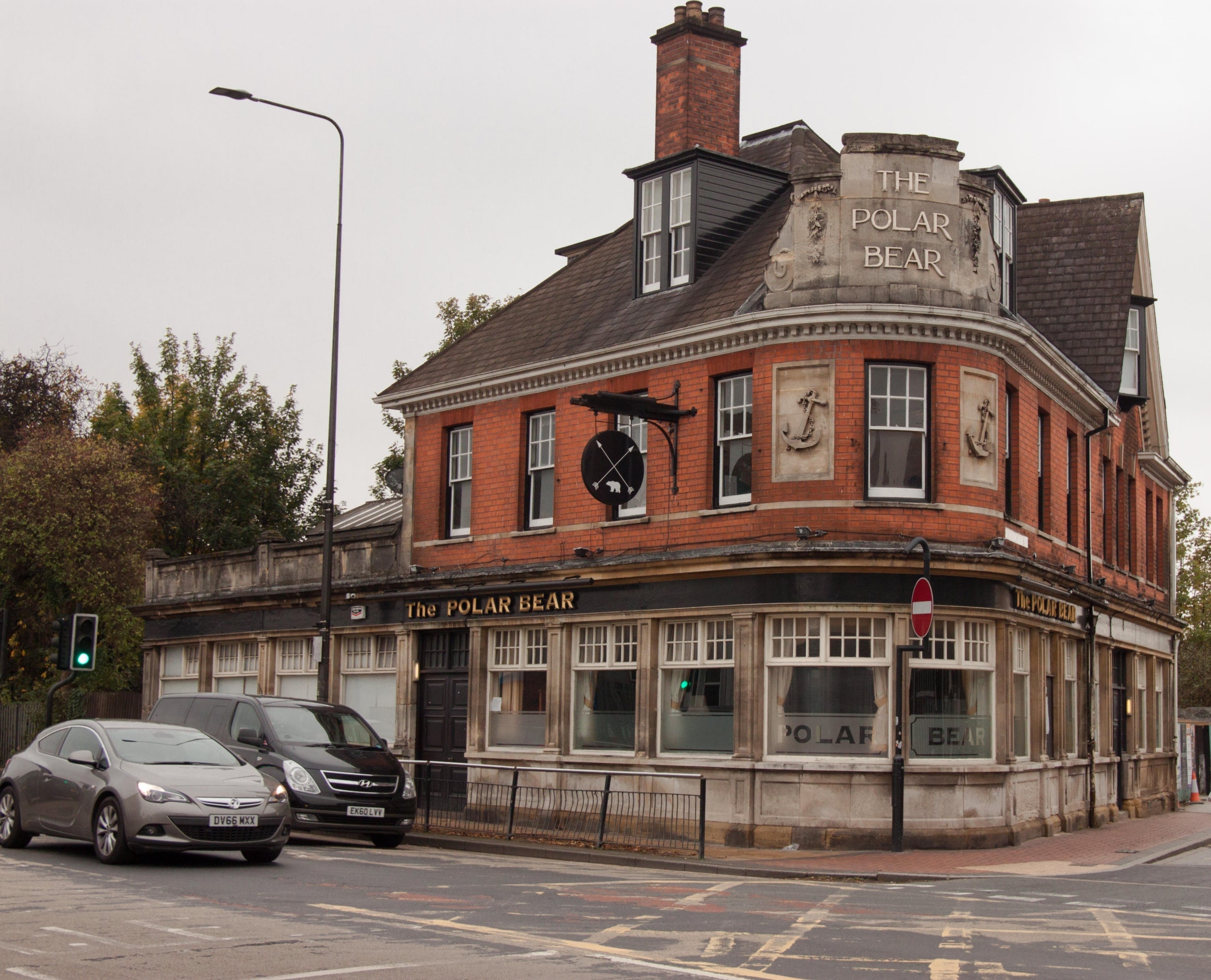
It’s already started. Last month, Hull gig-goers woke up to news of the closure of The Welly and The Polar Bear after their parent company, VMS Live, fell into administration after 115 days of lockdown.
The loss of the venues is described as “devastating” by Ryan Smith, the frontman of bdrmm, a band with its roots in the Yorkshire city.
Smith says the long-running weekly “Sesh” night put on by The Polar Bear was crucial to bands like his, providing them with a place to hone their talents and achieve their aim of making a living from their music. Given how limited revenues from recorded music are in the streaming era, it also makes up an ever more important part of a band’s income.
But ultimately whether venues survive or whether we see hundreds of closures is up to the government. Grassroots music venues have done the right thing
“It is a bit of an overlooked city, so that night was crucial. It gave us the chance to build our confidence and have an experience of playing live,” Smith says. “When we heard they were closing, honestly, it was awful. It was crushing to know we would never play at The Polar Bear again.”
Nat Cramp runs Sonic Cathedral, the indie label that recently put out the band’s well-received debut album Bedroom, that evokes the classics of the shoegazing era with a modern twist.
“The music industry is an already fragile ecosystem, and when one part of it stops functioning, it puts everything else out of balance,” he says.
“Small labels like mine need their bands to play live to promote their releases and engage with and expand their audience in ways that they just can’t on social media, or even on a live stream. And even before all of that, bands need to hone their craft and grow and develop and – hopefully – be seen by someone who wants to sign them. I first heard bdrmm on the radio, but my first reaction was to find out when they were next playing live in London so I could see if they were as good as I hoped they would be. They were, of course, but now they can’t play live for anyone.”

That’s a point taken up by Davey, whose wife is a musician: “It’s not just a question of the venues. You have to look at the other side of it too. You have to think about the artists. It’s no good having venues if you don’t have anyone to play in them. All musicians are freelancers, remember.”
Davey’s point is well made because, despite the urgings of the Treasury Committee, freelancers have largely been left out in the cold when it comes to government support.
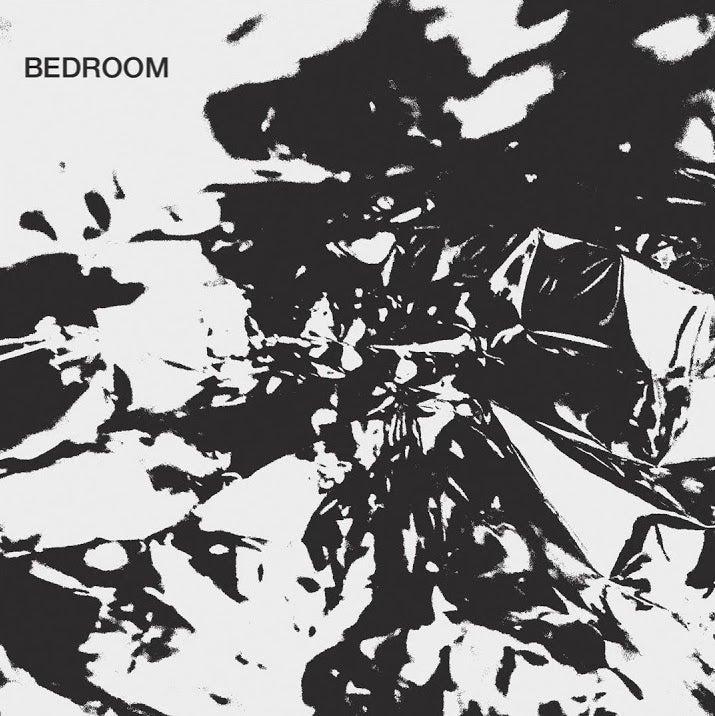
As for the venues, they are all now crossing their fingers and hoping Arts Council England hears their pleas. Davey has budgeted for further support, and he probably isn’t alone. When I ask what would happen if it is not forthcoming, he shudders, stares into space, and uses words like “drastic” in combination with “cuts”.
You would nonetheless expect the Roundhouse to survive. It’s a high-profile venue, which has received support for its activities from high-profile backers. The names of Bloomberg and Nando’s adorn some of the facilities Davey shows me on my tour.
That’s almost certainly true of the Albert Hall too, given its status as a prestige venue.
It isn’t true of all, however. There will inevitably be more Wellys and more Polar Bears in the weeks and months ahead.
Davyd says his sector is “incredibly grateful to artists and audiences for everything they’ve done to prevent closures until this date”.
“But, ultimately, whether venues survive or whether we see hundreds of closures is up to the government,” he says. “Grassroots music venues have done the right thing, and they need to keep doing the right thing. To do that, they need the government to do the right thing. Act swiftly, step in, and take action right now to protect the incredibly vibrant and vital grassroots sector that sits at the centre of the nation’s musical reputation.”
He’s right. When I talked to friends I attend shows with, they were horrified at Davey’s realistic prediction of April for the resumption of live shows.
Their horror will turn to tragedy if the spirits of past shows currently haunting the empty Roundhouse are forced to remain as ghosts.
Can Arts Council England ensure that the bands play on? It’s already provided various sources of emergency funding, including more than £10m to the music sector. It is also overseeing the government’s Culture Recovery Fund and has published guidance to organisations looking to apply for help.
But the money has to be shared between “artists and arts organisations, museums and libraries” among others.
Darren Henley, the chief executive of Arts Council England, recognises the importance of venues. He says: “Live music venues perform a vital role in England’s music ecology. As well as nurturing the next generation of talent across a huge range of musical genres, these are the places that spark that special connection between audiences and professional musicians.
“We are pleased to be administering vital investment from government through the Culture Recovery Fund, which alongside our own funding programmes will help ensure as many organisations as possible survive the challenges posed by Covid-19, so they can continue to serve their communities safely in the future.”
Still, it seems all but certain those communities will have to make do with less of them. That will be an economic as well as a cultural tragedy.
Join our commenting forum
Join thought-provoking conversations, follow other Independent readers and see their replies
Comments